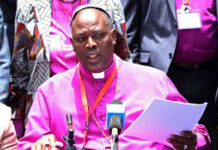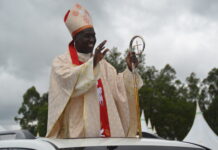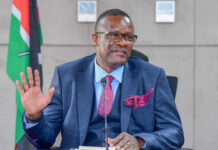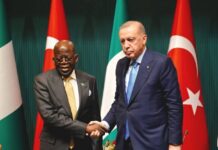One of the most enduring legacies of Pope Francis’ papacy may be his unprecedented move to appoint more women to senior Vatican roles.
While recovering from double pneumonia in early 2025, Francis made a historic appointment from his hospital bed, naming Sister Raffaella Petrini to a position similar to governor of Vatican City—the first woman to hold such a role.
Just weeks earlier, he had appointed Sister Simona Brambilla to lead a major Vatican department, overseeing Catholic religious orders worldwide—the first woman ever to do so.
Yet despite these advances, Francis, who was elected pope in 2013 and passed away on Monday at age 88, left many advocates for women’s equality in the Church disappointed. He avoided making definitive moves toward ordaining women as clergy.
Though he established two commissions to explore whether women could serve as deacons—ordained ministers who, unlike priests, cannot celebrate Mass—he ultimately did not act on their findings. He also consistently upheld Pope John Paul II’s 1994 ruling that barred women from the priesthood.
“Pope Francis’ legacy on women in the Church is complex,” said Anna Rowlands, a British academic and Vatican adviser. “He did more than any of his predecessors to promote women to positions of authority, but mostly stayed within the existing framework.”
Paola Lazzarini, an Italian Church reform advocate, called him “the first pope fully aware of the Church’s deep, unjust gender imbalance,” but said his efforts largely relied on isolated appointments and lengthy commissions that produced few tangible results.
The first commission on women deacons, active from 2016 to 2019, studied the historical precedent for women’s ordination in the early Church. Though it produced a report, the Vatican never published it. Francis later said the group couldn’t reach a consensus—a claim some members have challenged.
A second commission, formed in 2020, never completed its work.
Breaking Ground in Vatican Leadership
Despite resistance to wider change, Francis made notable appointments. In 2016, he named Barbara Jatta as the first female director of the Vatican Museums. In 2021, Sister Nathalie Becquart became the first woman to serve as co-undersecretary of the Synod of Bishops, and in 2022, Sister Alessandra Smerilli was named the Vatican’s deputy development chief.
He also included women on a previously all-male committee responsible for selecting bishops—a move he described as “opening things up a bit.”
Francis allowed women to vote in synod meetings for the first time, making them full members of these global Church assemblies. At the October 2024 synod, nearly 60 women joined about 300 cardinals, bishops, and priests.
“Francis brought the conversation about women in the Church to a new level,” said Phyllis Zagano, a Hofstra University scholar and member of the first deacons commission. “We can only hope his vision of human dignity continues to inspire.”
Catherine Clifford, a Canadian theologian involved in drafting the 2024 synod’s final text, praised Francis for giving women a genuine voice. “His reforms highlighted the urgent need to include women in Church decision-making at all levels,” said Clifford.
A Mixed Record
However, some of Francis’ comments on women drew criticism for being outdated. During a 2024 trip to Belgium, he described women as having “a fertile welcome, care, and vital devotion,” prompting a Catholic university to publicly express its disapproval.
He also defended the male-only priesthood by saying he feared creating a version of “masculinity in a skirt.”
“He often struggled to use language—or humor—that didn’t alienate,” said Rowlands. Still, she noted, he was outspoken on issues that disproportionately affect women, such as human trafficking and economic injustice.
“In these areas, many women admired him for his compassion and clarity,” she said.
Natalia Imperatori-Lee, a professor at Manhattan College, summed up his impact: “Overall, Francis helped the cause of women in the Church.”



















